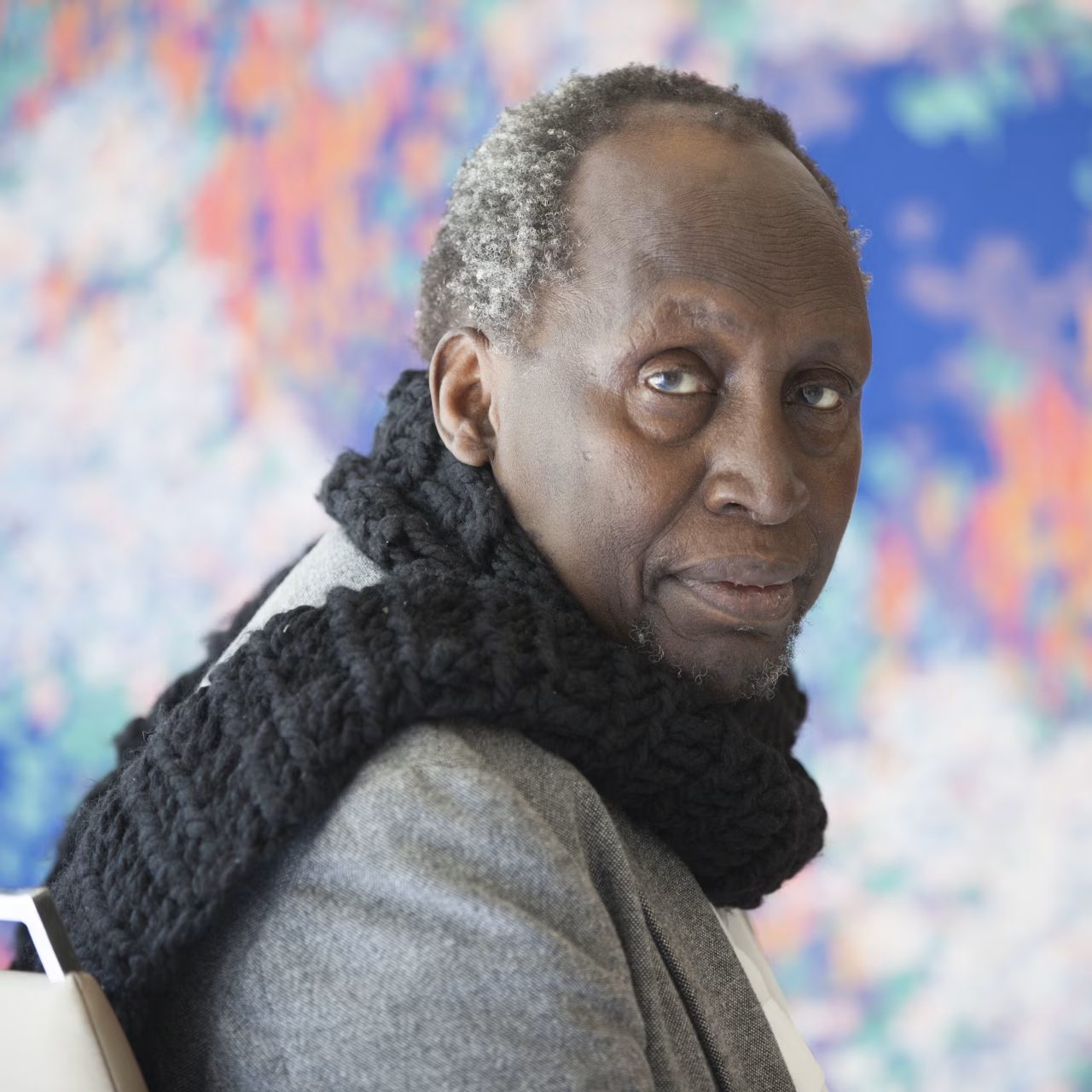
He told the truth, and he did it in a language the people understood
He told the truth, and he did it in a language the people understood
I remember sitting in a university literature class, flipping through the pages of I Will Marry When I Want. Ngũgĩ wa Thiong’o’s words hit differently, it was raw, and the themes deeply rooted in a history I hadn’t fully grasped. That one play pushed me to explore more of Ngũgĩ wa Thiong’o’s work and get deeper into the history of the Mau Mau rebellion in Kenya. I’ve always loved history, so this opened up a whole new way of thinking for me.
When I heard about his passing with very little attention around the world, it didn’t sit right. I knew I had to write this. To remember him properly. To tell his story. And maybe, just maybe, to inspire someone else to pick up one of his books and see the world differently too.
On May 28, 2025 in Buford, Georgia, the world lost a literary giant. Ngũgĩ wa Thiong'o, Kenya’s most rebellious storyteller, a lifelong critic of colonialism, and a tireless warrior for African languages passed away at the age of 87. The man whose words had once lit fires in the hearts of freedom fighters, thinkers, and dreamers is now no more.

Born James Ngugi in 1938 in the village of Kamiriithu, he was the fifth child of his father's third wife. At the time, Kenya was still under British colonial rule, and Ngũgĩ grew up surrounded by fear, resistance, and survival. He was a bright child, but he saw the worst of his country’s pain. The Mau Mau rebellion, the arrests, the betrayals, the blood-soaked soil, these were the daily realities of Kenyans. They were his reality. One of his brothers was even shot for failing to follow a British officer’s command, only for them to realize he was deaf.
At Makerere University in Uganda, he studied literature alongside Africa’s stars like Chinua Achebe. Weep Not, Child, his debut novel in 1964, announced him as a force to reckon with as the first East African novel in English to be published. This was the beginning of something special in his life.
Ngũgĩ's writing wasn’t the kind you casually leaf through. It cut. Whether it was The River Between, A Grain of Wheat, or Petals of Blood, his stories tackled colonialism, Christianity, betrayal, and the complicated dance between modernity and tradition. He didn’t shy away from Kenya’s scars. He poked at them, forcing his readers to look.
After co-writing Ngaahika Ndeenda (I Will Marry When I Want, 1977), a Gikuyu play that exposed classism alongside themes of poverty, gender, culture, religion, modernity vs. tradition, marriage and family, the Kenyan government had had enough. Ngũgĩ was arrested and detained in Kamiti Maximum Prison. He told the truth and he did it in a language the people understood, but the government despised.
In that prison, he wrote Devil on the Cross on toilet paper. Yes. Toilet paper.
When Ngũgĩ got out of prison, he had a new battle cry: decolonize the mind. He dropped his English name and vowed never to write in English again. “Language,” he argued, “is not neutral.” It carries memories, culture, and history. And for Africans, English was the language of oppression.
So, he turned his back on global recognition to write in Gikuyu not for the approval of the West, but for the empowerment of his people.
His 1986 book Decolonising the Mind remains a bible for postcolonial thinkers. It’s less a book and more a manifesto that storytelling should serve the soul of the people, not the expectations of their former masters.

Of course, the system didn’t like that. Harassment followed. In 1982, he fled into exile. From London to New York to California, Ngũgĩ found sanctuary in academia but never stopped writing, speaking, and pushing back.
Even his return to Kenya in 2004 came with a price. A brutal attack on him and his wife Njeeri who was raped in a Nairobi hotel reminded him and the world that telling the truth can be dangerous.
Still, he never stopped.
Matigari, Wizard of the Crow, countless essays, lectures, and short stories his output was relentless. His voice kept going.
Ngũgĩ was never awarded the Nobel Prize in Literature, despite being shortlisted multiple times. But maybe that’s fine. Because what he created was more than just literature.
He gave Kenya its literary backbone. He forced Africans to ask hard questions: Who are we when we strip away the colonizer’s tongue? What stories remain when we speak in our mother tongues? What power do we reclaim?
His influence is everywhere in classrooms in Lagos, in street theatres in Accra, in the minds of young African writers finally daring to write in Igbo, Zulu, Yoruba, Wolof, Amharic.
When President William Ruto called him "a literary icon who shaped Kenyan thought," he was right. But even that felt like an understatement.

Ngũgĩ wa Thiong'o didn’t write for comfort. He wrote for revolution. He didn’t just want to be read, he wanted to be heard, understood, feared by oppressors, and loved by the people.
He may be gone, but every time a child speaks their native language with pride, every time a writer chooses their mother tongue over English, every time someone picks up A Grain of Wheat and feels that fire, Ngũgĩ lives on.
And maybe, just maybe, that’s the kind of immortality he always wanted.
Comments